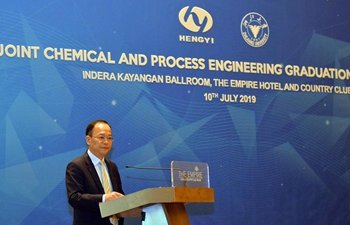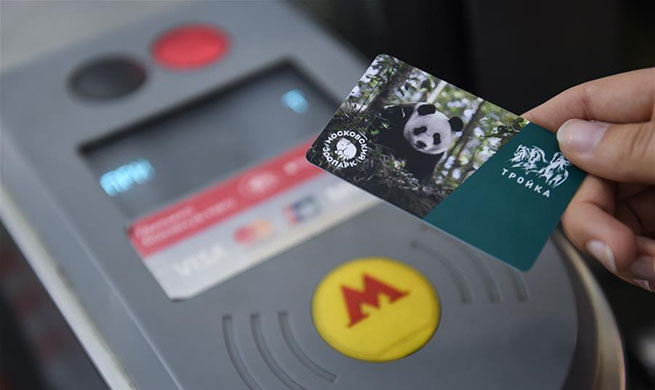by Ndalimpinga Iita
WINDHOEK, July 11 (Xinhua) -- For years, Lucia Hamata, a visually impaired teacher at Eluwa Special School in Oshana region in the northern part of Namibia aspired to advance and diversify her knowledge. She, however, struggled to access content in braille in the area.
As luck would have it for her, the Oshana Regional Education Directorate in the Ministry of Education, Arts and Culture recently rolled out satellite library services at the school as part of the access to information and libraries for all initiative.
The satellite library services are an extension of the local Oshana Regional Resources Center offering.
The initiative was an eye-opener for Hamata, referring to it as a first for her to observe a campaign oriented around inclusivity in libraries in the area, and that comes to people with special needs.
"We did not know that the library offers books and learning materials for people with special needs and impairment. It was never done in the past," she said.
Chief Librarian, Jacob Muleka said that the Ministry executed the campaign to ensure inclusivity for all served in the education fraternity and broader community.
According to Muleka, libraries are a gateway for locals to the knowledge that provides the underlying condition for lifelong learning, informed decision making, and development for community members.
"We realized that many people are unaware of the various library services available. The central aim is therefore to raise awareness that services available for people regardless of their social standing, ability or disability," he said.
The special services offered as part of the Oshana Regional Resource Centre include content in braille, audio material as well as teaching and learning aids amongst others. However, not all libraries across the country are well-equipped.
Inclusivity in national libraries have been a challenge for the ministry, said Namutenya Hamwaalwa, a deputy director for National Libraries and Archives Services on Thursday.
"The current situation is that we do not have adequate braille books or audio materials in all our Libraries. We, however, have identified that need and address it," Hamwaalwa said.
Accordingly, since the initial roll-out in June, thus far, for teachers like Hamata, the initiative has not only been beneficial to her but the wider school community, in particular, the learners.
"Our learners with special needs now know there are material accessible at community libraries, which ensures inclusivity and will drive improved performance," she said.
Eluwa Special School is not the only one. Josephine Iita, a librarian at Ondangwa community library in the region, encounters many community members with disabilities who wish to access library services.
"Promoting services based on the principles of inclusivity aids in shunning stereotypes and discrimination about disabilities and access to information, hence the importance of the initiative," she said.
In the interim, Muleka said that plans are underway for the program to be rolled out to other schools for communities to adopt a culture of reading to become knowledgeable citizens to yield improved results.
The ministry oversees 65 public libraries and 14 ministerial libraries nationwide.













